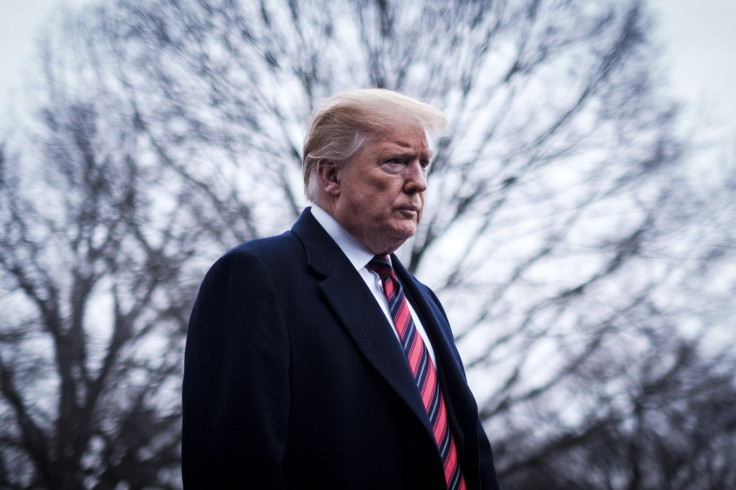Trump Says US-China Trade War Will Be Decided In 'Three Or Four Weeks'

President Donald Trump says the stalled trade talks with China which was inflamed by his imposition of new tariffs on May 10, and which has seen 10 unsuccessful meetings since last year, will be over in about a month.
Without offering any proof for his optimism, Trump told media that the trade talks will be decided soon.
"We'll let you know in three or four weeks if it’s successful,” he said.
This comes after another round of failed talks at Washington last week. Trump then levied higher tariffs for imported Chinese goods. The president claims the tariffs he’s imposing are being paid for by the Chinese government and not by American importers and American consumers.
Chinese products shipped to the U.S. now face a 25 percent tariff. Most of these goods and commodities were previously subject to a 10 percent import tax.
China retaliated Monday by levying higher tariffs on $60 billion in U.S. goods. It will increase tariffs on more than 5,000 products to as high as 25 percent, while tariffs on some other goods will increase to 20 percent. Those rates will rise from the previous 10 percent or 5 percent.
Trump has promised to retaliate further after China’s decision and investors are becoming increasingly antsy at the prospect of this heightened trade war impacting the broader U.S. economy. The Office of the U.S. Trade Representative led by Robert Lighthizer, who champions punishing China with tariffs, is preparing to impose tariffs on the remaining $300 billion worth of Chinese goods imported to the U.S.
Trump's belief that China is affected most by the increased tariffs has been opposed by analysts, saying U.S. consumers will be the ones absorbing the blow. This was also confirmed by Larry Kudlow, his own Director of the National Economic Council.
In an interview on Fox News Sunday, Kudlow admitted the Chinese government doesn’t directly pay tariffs on Chinese goods coming into the U.S. Instead, American importers pay these higher duties to the U.S. government. Importers then make-up the higher tariffs by passing-on the cost to U.S. consumers in the form of higher prices for goods and commodities.
“It’s not China that pays tariffs,” said host Chris Wallace. “It’s the American importers, the American companies that pay what, in effect, is a tax increase and oftentimes passes it on to U.S. consumers.”
Kudlow agreed but hedged his statement by saying the Chinese will also pay in the form of GDP losses.
Pressed further by Wallace who said “It’s U.S. businesses and U.S. consumers who pay. Correct?” Kudlow was forced to admit:
"Yes, to some extent. I don’t disagree with that.”

Trump’s belief in his flawed claims continues to be evident in tweets he sent out Sunday saying, “the deal will become far worse for them if it has to be negotiated in my second term. Would be wise for them to act now, but love collecting BIG TARIFFS!”
Trump on Monday again sought to spin his decision to increase tariffs on U.S. imports from China as hurting China while benefiting the U.S., saying China will pay for the U.S. tariff increase. Economists have long called-out Trump on this, saying U.S. businesses and consumers will bear the immediate financial burden in the form of higher prices of any tariff increase.
© Copyright IBTimes 2025. All rights reserved.





















